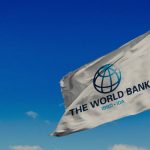The Federal Government of Nigeria is in discussions with the World Bank to secure a $500 million loan under the HOPE for Quality Basic Education for All initiative, aimed at improving educational outcomes and addressing the country’s growing number of out-of-school children. The project, set to receive formal approval by March 2025, is a major part of Nigeria’s efforts to overhaul its struggling education sector.
According to the Programme Information Document (PID) for the loan, the total cost of the project is $554 million, with $500 million covered by the World Bank and $54 million from a Global Partnership for Education (GPE) grant. The initiative aligns with the Universal Basic Education (UBE) framework, focusing on expanding access to early childhood, primary, and junior secondary education.
The project comes at a critical time, as 17.1 million Nigerian children aged 5-14 remain out of school. It aims to tackle regional enrollment disparities, particularly in northern Nigeria, where school attendance lags behind the southern regions. The Federal Ministry of Finance, in partnership with the Universal Basic Education Commission (UBEC) and the Federal Ministry of Education, will lead the project’s implementation.
The World Bank’s investment will focus on improving teaching quality through training, supporting community-based schools, and providing grants for better infrastructure. “The HOPE-Education program will enhance foundational literacy and numeracy skills among children while integrating data systems to track progress,” the PID explained.
The program will also incentivize states through performance-linked grants, allowing them to design education projects that align with the operation’s broader goals. Additionally, it is part of Nigeria’s larger Human Capital Development Strategy, which seeks to create a productive workforce by 2030.
While Nigeria remains Africa’s largest economy, over 40% of the population lives in poverty, with limited access to quality education being a significant barrier to growth. The loan is expected to complement other government initiatives like the National Home-Grown School Feeding Program, aimed at reducing the financial burden on parents and increasing school attendance.
Commenting on the World Bank’s role, Dr. Ndiame Diop, World Bank Country Director for Nigeria, said, “Nigeria is a very important partner for the World Bank. We provide not just financing but technical and implementation support to ensure projects meet their objectives.”
This loan would bring Nigeria’s total borrowing from the World Bank to $16.5 billion, positioning it as the third-largest debtor to the International Development Association (IDA).
As Nigeria continues to grapple with educational challenges, this new financial commitment could provide a lifeline for millions of children across the country, setting the stage for long-term growth and stability.










